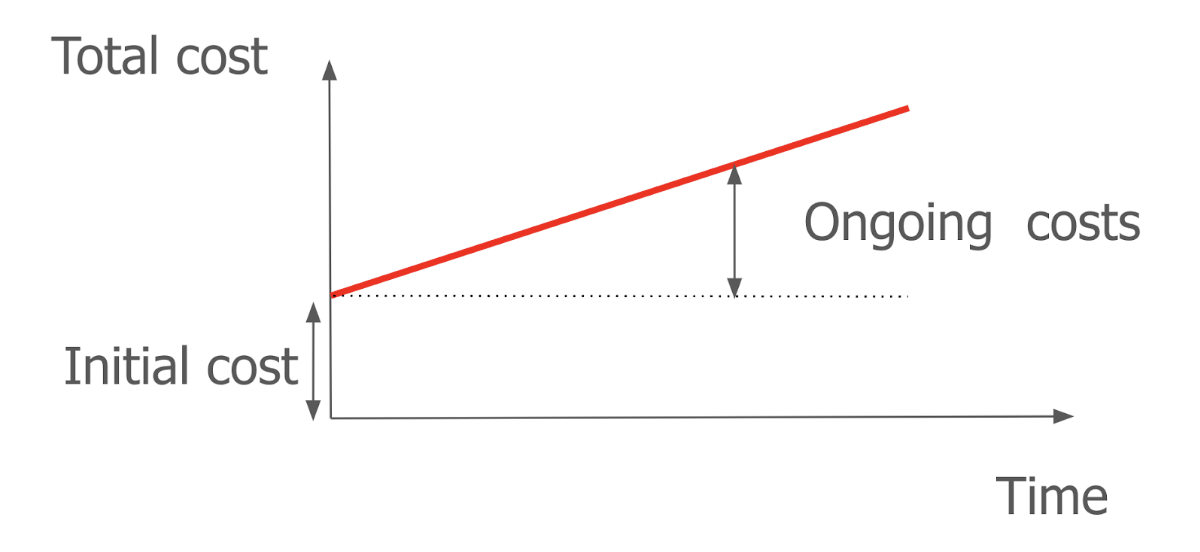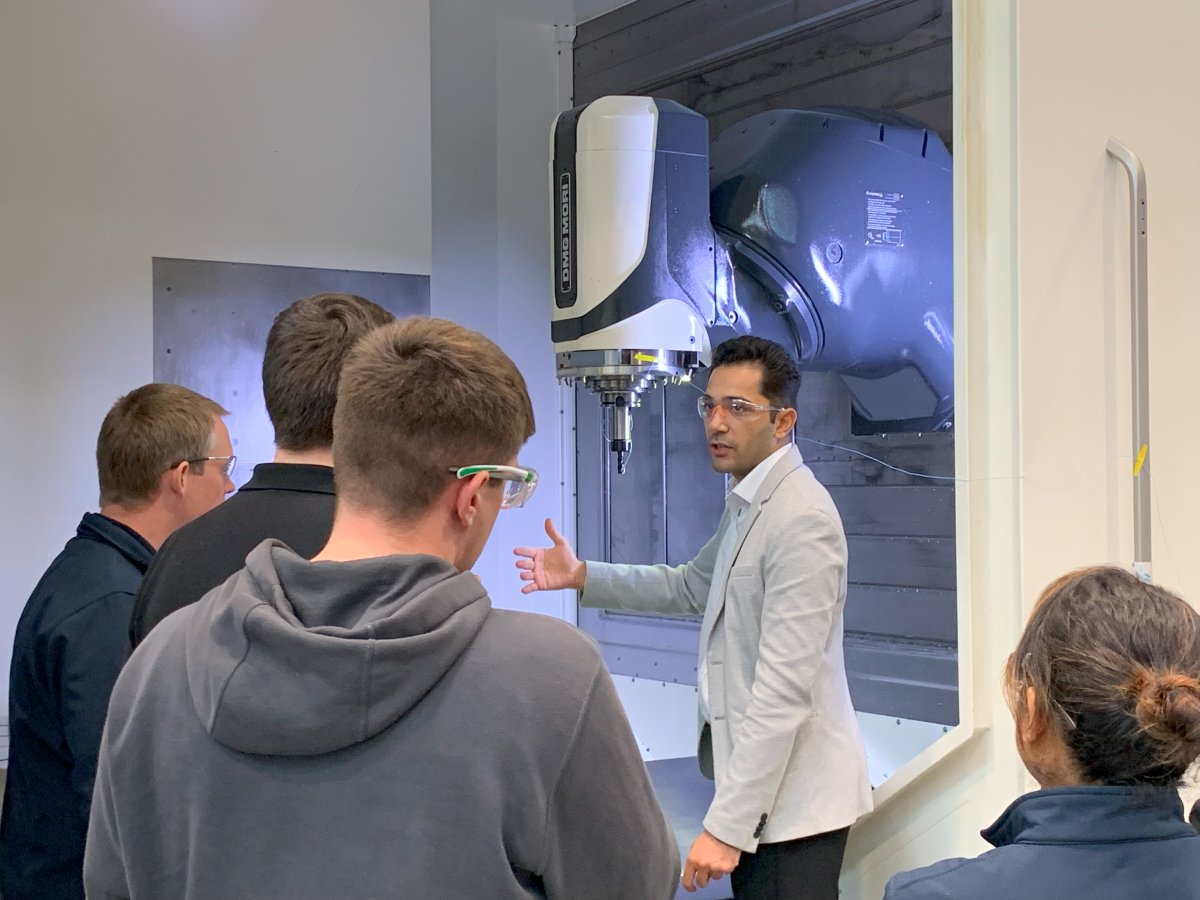Reshoring Aerospace Parts Cost Effectively
In today's competitive global manufacturing landscape, UK businesses face significant challenges in competing with countries like India, China, and Taiwan, which benefit from lower labour costs and favourable economic conditions. To remain competitive, UK manufacturers must find ways to reduce production costs, particularly in manufacturing processes. This blog explores how Productive Machines technology can help UK manufacturers reduce machining costs and enhance their global competitiveness.
Understanding Reshoring in Aerospace Manufacturing
Reshoring refers to the process of bringing manufacturing activities that were previously outsourced overseas back to the home country. This strategic move is becoming increasingly significant in the aerospace industry due to several compelling drivers:
- Cost Considerations: Initially, outsourcing seemed cost-effective due to lower labour costs overseas. However, hidden costs such as shipping, tariffs, and quality issues have prompted companies to reconsider.
- Quality Control: Maintaining high standards of quality is crucial in aerospace. Reshoring facilitates better oversight and control over production processes, ensuring parts meet stringent specifications.
- Supply Chain Resilience: The global disruptions caused by events like the COVID-19 pandemic have highlighted the vulnerabilities in extended supply chains. Reshoring strengthens supply chain resilience by reducing dependency on foreign suppliers.
- Time to Market: Shorter supply chains mean faster turnaround times. Products can reach the market quicker, giving companies a competitive edge.
- Government Policies: Many governments are offering incentives and support for reshoring initiatives, making it financially attractive for companies to bring manufacturing back home.
- Technological Advancements: Innovations in manufacturing technology, such as automation and digitalisation, have made domestic production more cost-effective and efficient.
- Sustainability: Reducing the distance goods travel can lower carbon emissions, contributing to sustainability goals.
The Machining Process in Relation to Reshoring
Subtractive manufacturing involves removing material from a workpiece to achieve the desired shape and size. This process is vital in industries such as automotive, aerospace, medical and electronics. The total cost of CNC machining is influenced by mainly initial costs and ongoing costs :

Initial cost is mainly about the investment required to start production. It consists of the purchase of CNC machine tool(s), tool holders, fixtures, automation hardware and software. The cost of these can vary depending on the country, but they would not be playing a major role in the competitiveness of a given manufacturer.
Ongoing costs, on the other hand, can be the main differentiator between the manufacturers. They include the following cost items:
- Cutting tools
- Workpiece Materials
- Metal Working Fluid
- Energy
- Maintenance
- Staff wages
The table below tabulates a benchmark between the UK based and overseas manufacturers on the above cost items.
| Ongoing Costs | UK vs Overseas |
|---|---|
| Cutting tool | Similar |
| Workpiece Material | Similar |
| Metal Working Fluid | Similar |
| Energy | More expensive in the UK |
| Maintenance | Similar |
| Staff wages | More expensive in the UK |
In general, costs except the energy costs and staff wages are similar among the UK and overseas based manufacturers
Machining companies require skilled people to run CNC machine tools and operations in the business. The skills gap is a fact, and it makes it harder to recruit the required skills in the business. In addition, the cost of living in the UK is higher compared to many other countries. Hence, staff wages are relatively higher in the UK.
CNC machine tools consume considerable energy while producing parts. As Denkena et al [1] pointed out, cutting machine tools account for 1 to 3%, or 200 to 700 TWh of the global electrical energy demand. The energy prices in the UK are more expensive compared to overseas.
These factors make the UK companies less competitive in terms of the cost compared to overseas manufacturers.
What can the UK-based manufacturers do to address this?
There is an easy fix for this. They can increase productivity by decreasing cycle times, which means literally producing more with less. But how can they do it?
They need technological advancement to realise this. Productive Machines play a pivotal role at this stage. Let’s present how this works on an aerospace case study:
A Challenge Faced by a Tier-1 Supplier to the Aerospace Industry
A Tier-1 aerospace company in the UK was struggling with quality and delivery issues from an overseas supplier. To address these challenges, they engaged AML Sheffield, a provider of advanced manufacturing and machining services. The Tier-1 supplier awarded AML Sheffield a 6-month contract to produce 3000 parts. AML Sheffield needed to meet stringent quality and delivery standards while also finding ways to reduce costs to secure a long-term contract after the initial 6-month contract.
Costs faced by AML Sheffield
As expected, their labour costs and energy costs were higher than the overseas supplier.
Strategies to Reduce Costs
To achieve a longer term contract AML Sheffield needed to reduce production costs. They aimed to achieve this by shortening cycle times and increasing productivity.
How Productive Machines Helped AML Sheffield?
Productive Machines introduced their process optimization solution, SenseNC Finesse. This advanced technology uses a digital twin to optimize machine tool settings, allowing AML Sheffield to utilise maximum potential of their machines and identify and eliminate potential issues before they occur.
Impact of Productive Machines' Technology
With SenseNC Finesse, AML Sheffield was able to
significantly reduce cycle times (over 20%) and realise
considerable cost savings.
Additionally, the technology contributed to
sustainability efforts by lowering CO2 emissions per
part; this is thanks to the energy savings derived from
shorter cycle times achieved.
For more detailed insights and specific results, you can
read the full case study.
Conclusion
Technology companies play a critical role in enhancing
the competitiveness of manufacturers, as demonstrated in
this reshoring case study. Productive Machines'
autonomous milling optimization solution, SenseNC
Finesse, has proven effective in reducing cycle times
and costs while improving quality and sustainability.
Reshoring, supported by technological
advancements, minimises the dependency of UK companies
on overseas suppliers and helps achieve a stronger
manufacturing sector in the UK. This case study of AML
Sheffield illustrates the potential benefits and
practicalities of reshoring aerospace parts
cost-effectively.
References
[1] Denkena, B.; Abele, E.; Brecher, C.; Dittrich,
M.-A.; Kara, S. et al.: Energy-efficient machine tools.
In: CIRP Annals 69 (2020), Nr. 2, S. 646-667. DOI:
https://doi.org/10.1016/j.cirp.2020.05.008


